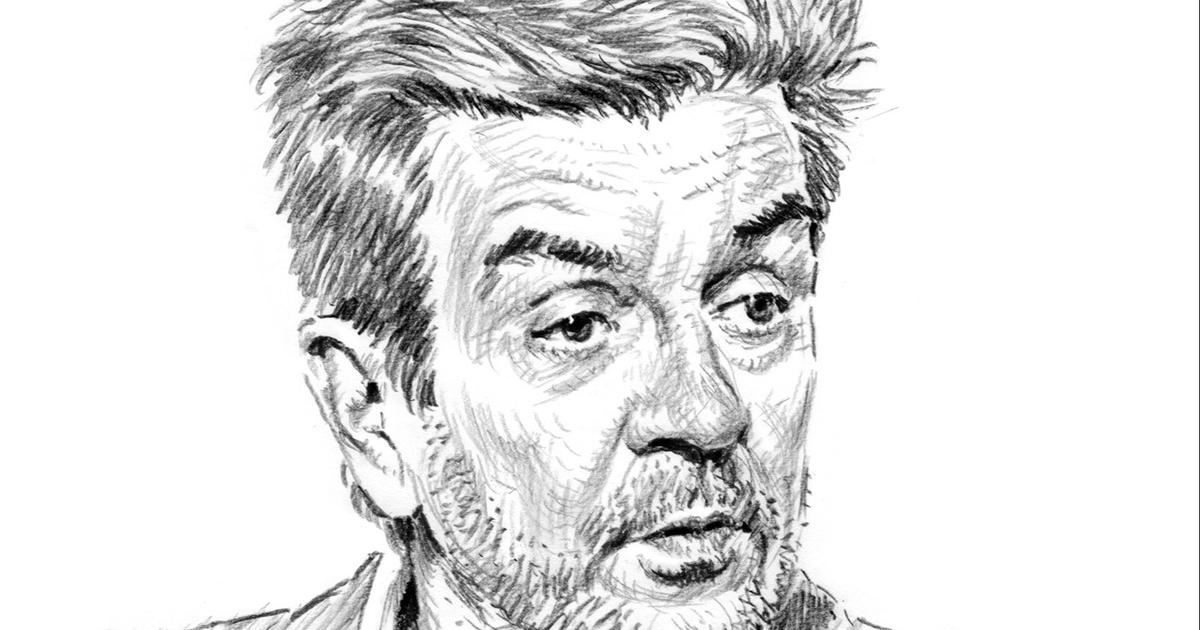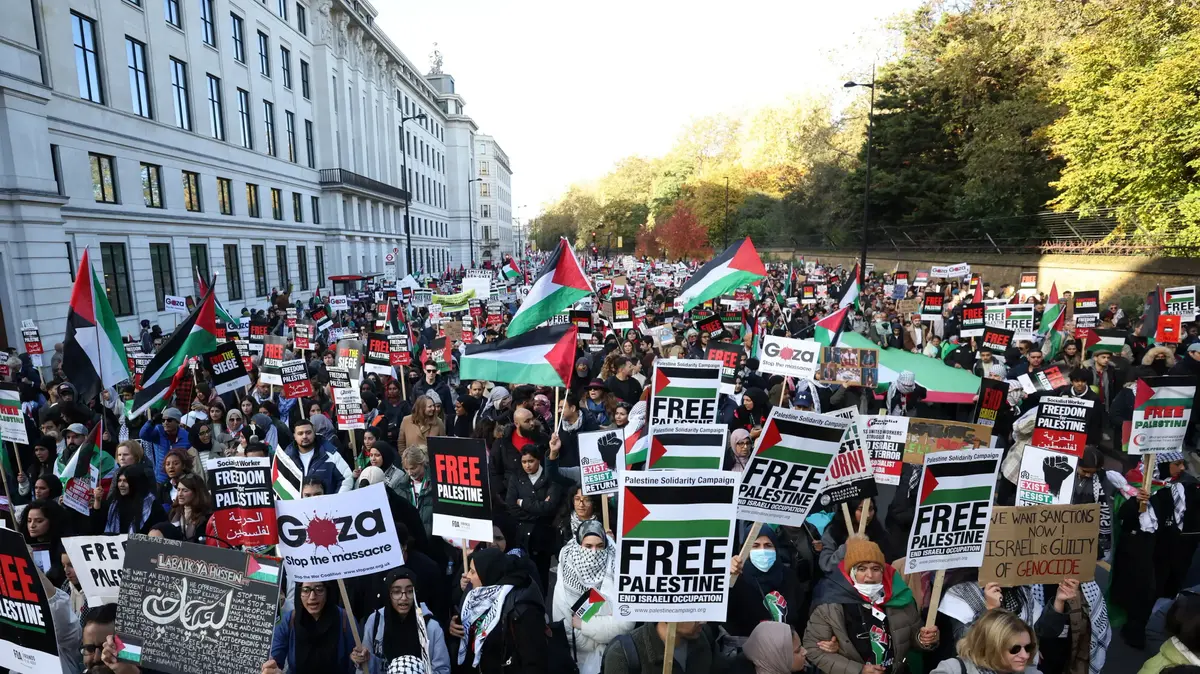“Anti-Semitism is a contagious virus”. Félix Klein did not mince his words when last April he warned about the rise of anti-Semitism in Germany. "There are direct links between the current spread of the coronavirus and that of anti-Semitism," said the German government commissioner responsible for anti-Semitism at the time. At the end of July, Josef Shuster, the president of the Central Council of Jews in Germany, took over by expressing his concern over the profusion of conspiracy theories on social media blaming Jews for the spread of the virus.
Read also: Anti-Semitism: where does this hatred come from?
This phenomenon is part of a growing trend in anti-Semitism. Crimes against Jews have, in fact, experienced a sharp increase in recent years in Germany, jumping by nearly 20% in 2018. “We have two indicators to measure anti-Semitism: on the one hand, the number of crimes committed against Jews, on the other hand, studies to determine what people think of different ethnic groups , says Professor Uffa Jensen, member of the Center for Research on Antisemitism in Berlin. Both indicators have increased even before the pandemic. We don't have the numbers for 2020, but I think they will increase, the coronavirus really hasn't helped ”.
Resurgence of old anti-Semitism
Germany is not the only country to experience a rise in anti-Semitism. In its annual report, published in April, the Kantor Center at Tel Aviv University recorded 456 violent anti-Semitic acts around the world in 2019, an increase of 18%. If the authors of the study have not yet included the statistics for 2020, they nevertheless noted that the Covid-19 epidemic had triggered a significant wave of anti-Semitism.
Anti-Semitic messages disseminated on social networks, caricatures of people believed to be Jewish, videos on YouTube, cyberattacks… Since the start of the pandemic, social networks have been full of conspiracy theories placing Jews at the heart of a global machinery. In France, the former Minister of Health Agnès Buzyn, as well as her husband Yves Lévy, professor of immunologist, were particularly targeted. Criticized for their management of the crisis, they are also blamed for the spread of the epidemic, in particular by supporters of Professor Raoult, annoyed by the lack of government support for hydroxychloroquine.
At the end of March, the Conspiracy Watch site thus relayed a tweet qualified as anti-Semitic. “While Buzyn refused to close the borders, her husband Lévy prevented Didier Raoult from publishing his results. While Jérôme Salomon liquidated our stock of masks. But hey, officially the poisoning of wells at the time of the plague is a myth, ” wrote a user on Twitter. According to the Observatory of Conspiracy, this message “literally updates the medieval myth of the poisoner Jew”.
In the same style, a number of caricatures of Agnes Buzyn have flourished on various forums and sites. "Some tweets and cartoons have conveyed the theory that the Jews have spread the virus," explains Tal Bruttmann, a historian specializing in anti-Semitism in France. This type of accusation goes back to the Middle Ages. In Germany or other European countries, anti-Semitism is still imbued with medieval myths. But this was not the case in France where we have seen the reappearance of an old anti-Semitism, which we had not seen in France for 6 or 7 centuries. "
Antisemitic caricature by Agnès Buzyn. Screenshot.
Antisemitic caricature by Agnès Buzyn. Screenshot.
In the Middle Ages, the Jews were held responsible for the spread of the plague. Sometimes with terrible consequences. “In 1349, in Strasbourg, half of the city's Jewish population was killed during the St. Valentine's Day massacre,” Tal Bruttmann recounts. There were also massacres in Grenoble where the entire Jewish population was killed " in prevention " and finally, the inhabitants had the plague afterwards. We had not seen this kind of accusation in France since. During AIDS, there were a few, but a small proportion. It really came back with the Covid. ”
Fifty complaints
Faced with the proliferation of these hate messages on social networks, the National Office for Vigilance Against Antisemitism has filed around fifty complaints since March, said its president, Sammy Ghozlan . “Anti-Semitism mostly continued on social media. It is something recurrent, the Jew is the scapegoat. We receive two to three hostile reports per day, whether they are anti-Semitic acts or messages on the networks ”.
“There is also another trend, that of anti-mask, anti-vaccine activists who say they are the new Jews because they are ' persecuted ' , analyzes Tal Bruttmann . And, in the same demonstrations there are also anti-Semitic placards. " In Germany, for example, weekly events are held in April. A motley crowd made up of activists from the far right, opponents of vaccines or restrictions on freedoms gathers to denounce the wearing of masks in stores in particular. Some protesters were seen with a yellow star pinned to their chest, marked "anti-vaccine ." “We were really shocked,” says Uffa Jensen. It is a sign designating the Jewish victims. A few extremist groups have started wearing them to signify that they are also victims - especially in far-right circles. It's offensive ”.
Similar events have also taken place in the United States, where protests to denounce anti-Covid-19 measures are not uncommon. In early May, during an anti-restriction rally in Chicago, a woman was photographed with a sign on which was written: "Arbeit macht frei", "work makes free" , the slogan inscribed at the entrance of the camp concentration of Auschwitz. According to one of the participants in the demonstration, who took a picture of the sign, this American woman assured that she was not a Nazi and that she had "Jewish friends".
"In recent years, anti-Semitism has increased in the United States, although it is not as prevalent as in France ," said American historian Deborah Lipstadt, professor of Jewish studies. The incidents have multiplied, it is no longer really a haven of peace for the Jews ”. The country also recorded a record number of anti-Semitic acts in 2019: 2,107 acts of aggression, harassment and vandalism against 1986 in 2017.
"The oldest hate in the world"
American far-right activists have even coined a new term: “holocough”, a contraction of holocaust and “cough” which means “cough” in English. A message thus circulated on the Telegram messaging system calling for transmitting the coronavirus to the Jews : "If you have the virus, give a hug, spread the flu, to all the Jews", one could read. The FBI has alerted to this practice and calls coming from neo-Nazis and white supremacists to transmit the virus to Jews. “Anti-Semitism has rightly been called the oldest hatred in the world, it is ' practical ' to hold Jews responsible for all evil. And then, the internet has helped spread anti-Semitism, ” adds Deborah Lipstadt.
Tal Brutmann also recalls that when faced with a “global shock” like the Covid, the reflex is often to blame someone. “There have been several racist, xenophobic and anti-Semitic theories that have come out. The Asians were held accountable at the start, for example, although it has eased since ”. The historian recognizes, however, that latent anti-Semitism has taken on more importance and is finding it harder to fade away. “Since we have had an explosion of anti-Semitism for twenty years, there is an entrenchment linked to social networks. So it's no wonder that anti-Semitism resurfaces every time there is a problem ”. And then, according to the historian, “in a pandemic, there are all the ingredients of anti-Semitism: to say that the Jews control the pharmaceutical lobby, that there is a global conspiracy and that they are responsible for it. origin of the disease, as with the plague ”.
A heavy climate which also promotes the feeling of insecurity among Jews, especially in France. “Today, they are attacked as close as possible to their home, they are accused of anything and everything. There are attacks, excrement in front of the doors… Some people are forced to move, and the pandemic has exacerbated things, it made people overexcited, ” says Sammy Ghozlan. Moreover, the demands to make his “aliyah”, the “ascension” in Israel, have increased. According to official figures, around 700 files were opened in May 2020 compared to 130 in May 2019 in the offices of the Jewish Agency in France. The Israeli authorities are thus preparing to welcome a wave of post-coronavirus Jewish immigration.









